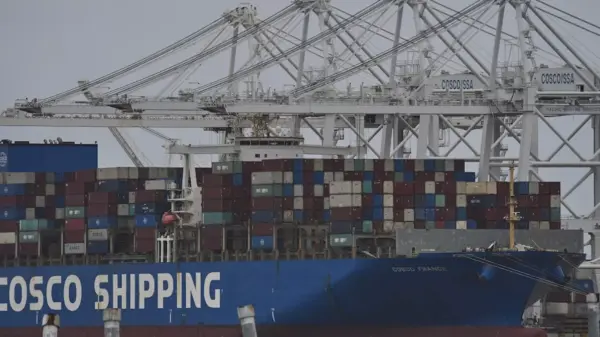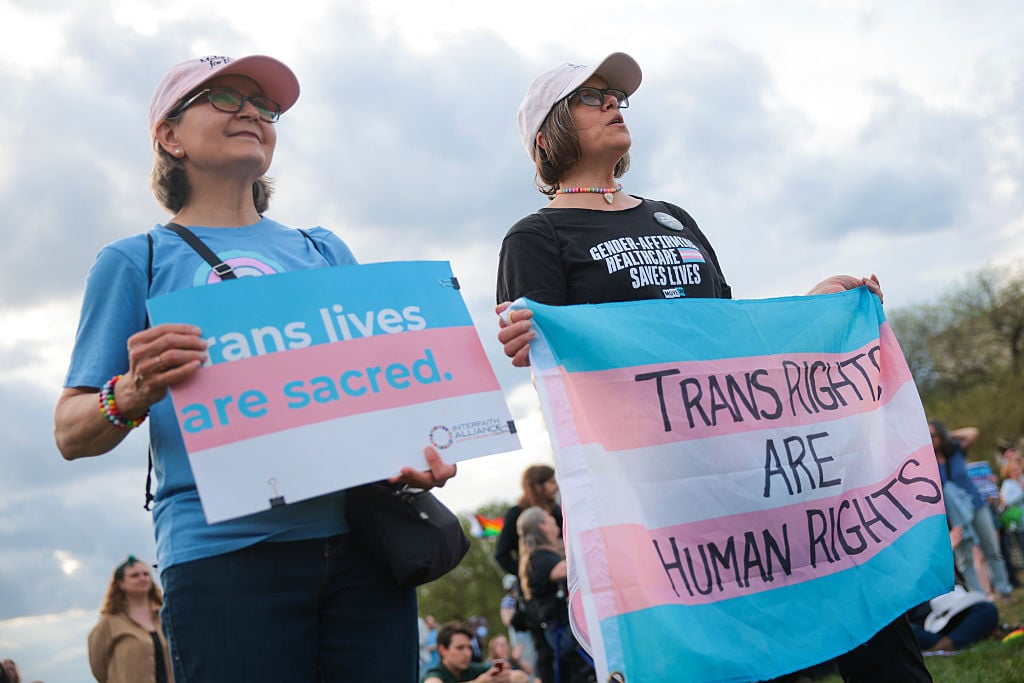U.S. Immigration and Customs Enforcement (ICE) has stopped reporting the number of transgender individuals in its custody, a move that advocates argue undermines efforts to protect the safety of queer individuals within the nation’s immigration detention system. This decision coincides with a broader trend where ICE has rolled back protections and care guidelines for transgender detainees.
According to a report from the Vera Institute for Justice, the agency ceased disclosing these statistics in February 2023, shortly after the inauguration of former President Donald Trump. This cessation contradicts a requirement established in 2021 mandating ICE to provide such data. The timing of this decision raises concerns, particularly as ICE has also revised its contracts with detention centers, eliminating provisions that ensured access to appropriate medical care for transgender individuals.
The implications of this lack of transparency are profound. Experts, including Noelle Smart, principal research associate at the Vera Institute, highlight that the absence of data mirrors a disturbing pattern of invisibility for marginalized groups within the U.S. immigration system. Smart asserts, “The harms of anti-immigrant and anti-trans policies are compounding, and at a time where we have even less access to basic statistics.”
Advocates express that the decision to halt reporting reflects an effort by the Trump administration to evade accountability while mass detention practices intensify. This is facilitated by significant increases in funding for ICE and the involvement of for-profit prison companies eager for lucrative contracts.
Issues of mistreatment in detention facilities have been documented extensively. A report from Immigration Equality, a nonprofit organization advocating for LGBTQIA+ and HIV-positive migrants, details the abuse faced by queer individuals in federal detention, including sexual and physical violence, solitary confinement, and inadequate medical care. Bridget Crawford, director of law and policy at Immigration Equality, notes that the abuse is particularly damaging for individuals who have fled violence due to their sexual orientation or gender identity. “The vast majority of our cases are for LGBTQ+ or HIV-positive people, and the types of abuse they face are incredibly high,” Crawford explains.
The ramifications of the Trump administration’s policies extend beyond the U.S. The executive order pausing refugee resettlements has left many queer individuals fleeing persecution in precarious situations. For instance, a report from Immigration Equality recounts the harrowing plight of a lesbian couple escaping the Taliban in Afghanistan and a gay Ugandan man trapped in Kenya. The tragic story of a Somali trans woman, referred to as Camilla, who was murdered after being denied resettlement, underscores the urgent need for protective policies.
In light of escalating discrimination and violence, many LGBTQIA+ individuals are reconsidering the U.S. as a destination for refuge. Senna Seniuk from Rainbow Railroad states, “For those who have some level of choice, the U.S. is a lower priority,” indicating a shift in perception regarding safety and acceptance in America.
Mainstream media attention on the issues faced by LGBTQIA+ migrants began to increase following the death of Roxana Hernández, a trans woman who died in ICE custody in 2018 due to inadequate medical treatment for HIV. Her death highlighted systemic failures within the detention system, prompting calls for improved conditions and accountability.
Reports of mistreatment have persisted. A trans woman held at Guantanamo Bay recently detailed being forced to shower in front of men and denied contact with legal counsel. Additionally, a recent lawsuit filed in January by a trans woman in Orange County, New York, alleged that immigration officials denied her medical treatment for a fractured nose and placed her in solitary confinement with cisgender men who harassed her.
The case of Andry Hernández, a gay Venezuelan asylum-seeker wrongfully labeled a gang member and held in a violent prison in El Salvador, further illustrates the dangers faced by LGBTQIA+ individuals in detention. After enduring months of hardship, Hernández was released in July, only to return to the very environment he fled.
As advocacy groups continue to push for accountability and change, the lack of data and oversight in ICE facilities raises critical questions about the treatment of vulnerable populations within the immigration system. The ongoing struggle for safety and dignity for LGBTQIA+ migrants remains a pressing issue, demanding urgent attention from policymakers and society at large.






































































